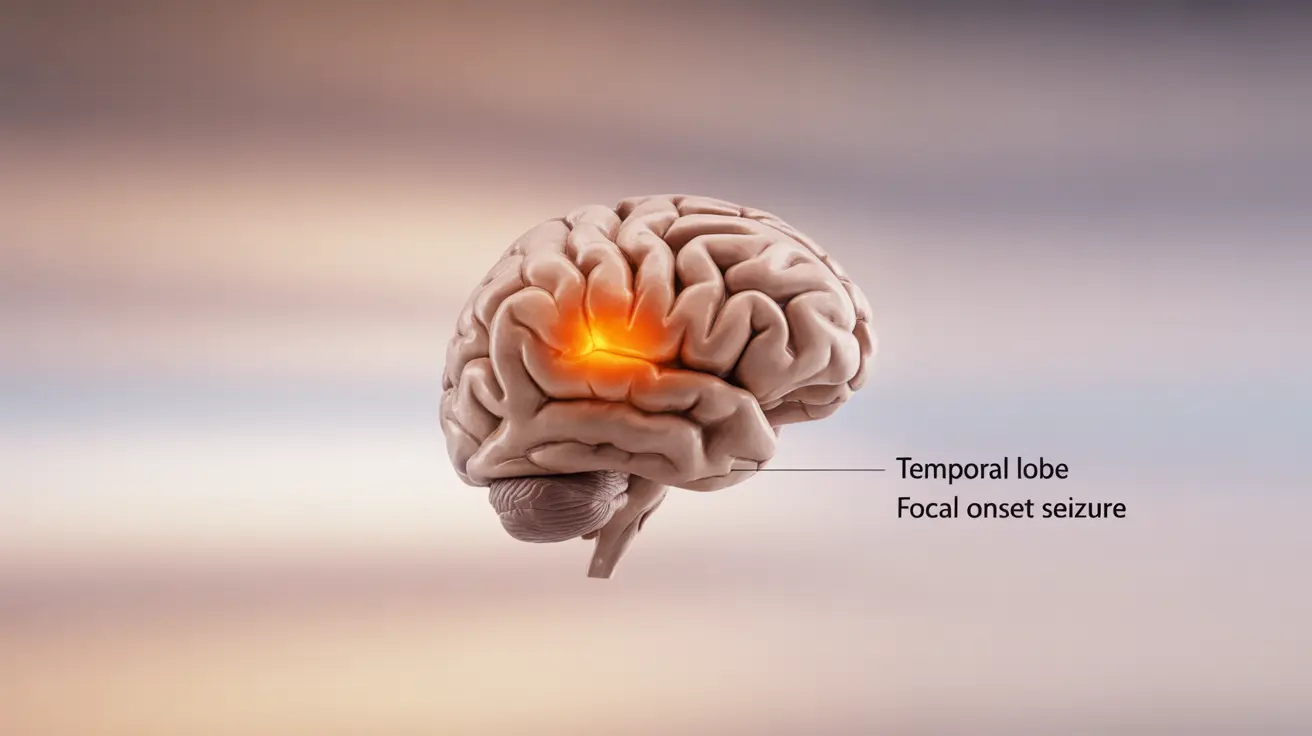Focal onset seizures, also known as partial seizures, are a type of epileptic event that begins in one specific area of the brain. These seizures can significantly impact a person's daily life and require proper understanding for effective management. Understanding the symptoms, causes, and treatment options is crucial for both patients and their caregivers.
Unlike generalized seizures that affect both sides of the brain simultaneously, focal seizures start in a localized region, leading to varied symptoms depending on which area of the brain is involved. This article explores everything you need to know about focal onset seizures, from recognition to management.
Recognizing Focal Onset Seizures
Focal onset seizures can manifest in various ways, depending on which part of the brain is affected. Common symptoms may include:
- Involuntary muscle movements or twitching
- Altered sensations or tingling
- Changes in consciousness or awareness
- Unusual emotional experiences
- Autonomic symptoms (sweating, stomach discomfort)
- Visual, auditory, or olfactory changes
These seizures can be categorized into two main types: aware and impaired awareness. During aware focal seizures, the person remains conscious and alert, while impaired awareness seizures involve some degree of consciousness loss or confusion.
Causes and Risk Factors
Focal onset seizures can result from various underlying conditions and factors:
- Brain injuries or trauma
- Stroke or brain tumors
- Infections affecting the brain
- Genetic factors
- Developmental disorders
- Brain lesions or scarring
Understanding these causes is crucial for proper diagnosis and treatment planning. Healthcare providers typically use various diagnostic tools, including EEG, MRI, and detailed medical history, to identify the specific cause in each case.
Treatment Approaches
Managing focal onset seizures typically involves a comprehensive treatment plan that may include:
Medication Options
Anti-epileptic drugs (AEDs) are often the first-line treatment. Different medications may be prescribed based on seizure type, frequency, and individual patient factors.
Surgical Interventions
When medications prove insufficient, surgical options might be considered, especially if seizures originate from a specific, operable area of the brain.
Alternative Therapies
Some patients may benefit from additional treatments such as:
- Vagus nerve stimulation
- Ketogenic diet
- Lifestyle modifications
- Stress management techniques
Managing Seizure Triggers
Identifying and avoiding seizure triggers is crucial for better control. Common triggers include:
- Lack of sleep
- Stress
- Alcohol consumption
- Missed medications
- Bright or flashing lights
- Certain medications
- Hormonal changes
Maintaining a seizure diary can help identify personal triggers and patterns, enabling better management strategies.
Frequently Asked Questions
What are the common symptoms and warning signs of focal onset seizures?
Common symptoms include muscle twitching, altered sensations, changes in awareness, emotional changes, and sensory disturbances. Warning signs (auras) may include déjà vu, unusual smells, or sudden emotions before the seizure begins.
What causes focal onset seizures and how are they diagnosed?
Focal onset seizures can be caused by brain injuries, infections, tumors, genetic factors, or developmental issues. Diagnosis typically involves EEG monitoring, brain imaging (MRI or CT scans), and detailed medical history evaluation.
How are focal seizures treated and what are the main treatment options?
Treatment primarily involves anti-epileptic medications, but may also include surgery, vagus nerve stimulation, or dietary changes. The approach is tailored to each individual's specific situation and seizure patterns.
Can focal onset seizures progress to generalized seizures and what does that mean?
Yes, focal onset seizures can sometimes progress to generalized seizures, known as focal to bilateral tonic-clonic seizures. This progression means the seizure activity spreads from one area to both sides of the brain.
What triggers focal seizures and how can I reduce the risk of having one?
Common triggers include stress, lack of sleep, alcohol, missed medications, and bright lights. Risk reduction involves maintaining regular sleep patterns, taking medications as prescribed, managing stress, and avoiding identified personal triggers.




